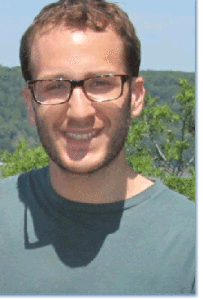AHA members are involved in all fields of history, with wide-ranging specializations, interests, and areas of employment. To recognize our talented and eclectic membership, AHA Todayfeatures a regular AHA Member Spotlight series. The members featured in this column have been randomly selected by AHA staff or nominated by fellow AHA members. If you would you like to nominate a colleague for the AHA Member Spotlight, please contact .
Daniel Bessner is an Einaudi Postdoctoral Fellow at Cornell University. He lives in Durham, North Carolina, and has been an AHA member since 2007.
 |
| AHA Member, Daniel Bessner |
Alma maters: PhD, MA, Duke University; BA, Columbia University
Fields of interest: 20th-century US history; political and cultural history; history of foreign policy; transnational history
When did you first develop an interest in history?
As long as I can remember, I’ve had an interest in history. It wasn’t until high school, however, that I realized that I could actually read history in my spare time. I believe it was 1998, and, as a result of Saving Private Ryan, I was curious about the history of World War II. That summer, I trekked over to Walden Books (since closed) and purchased Joseph E. Persico’s Nuremberg: Infamy on Trial. And the rest was “history.”
What projects are you working on currently?
I’m currently working on revising my dissertation into a manuscript, titled The Rise of the Defense Intellectual: Hans Speier and the Transatlantic Origins of Cold War Policy, which examines how the collapse of the Weimar Republic encouraged a transatlantic generation of social democratic and liberal intellectuals to reimagine their political function. This reconsideration, I argue, eventually led them to become part of the US foreign policy establishment during the early Cold War. I’m also working on a number of articles. One examines how intellectuals’ entrance into state and state-connected institutions fostered a procedural and elitist understanding of democracy that impelled them to remove considerations of public opinion from the foreign policymaking process. Another argues that exiled German intellectuals responded to their interwar encounter with the ideology of American exceptionalism by developing the Sonderweg thesis of German history.
Have your interests changed since graduate school? If so, how?
I only received my PhD in January, so my interests haven’t changed that much (yet)!
Is there an article, book, movie, blog, etc. that you could recommend to fellow AHA members?
One piece of media that I’ve been recommending to both colleagues and non-history friends is Backstory with the American History Guys, which is a podcast hosted by Peter Onuf, Ed Ayers, and Brian Balogh, all history professors at the University of Virginia. It’s a really entertaining and informative podcast, and is a great example of how digital technologies can bring academic research to a wider audience without watering it down.
What do you value most about the history profession?
I think that researching and teaching history is a means to inspire readers and students to look at their world in new ways and to encourage them to consider how ideas, events, and situations that seem natural are the result of multivalent, often hidden, processes. This, I believe, has the capacity to change how people interact in and understand their daily lives.
Do you have a favorite AHA annual meeting anecdote you would like to share?
Not yet!
Other than history, what are you passionate about?
My partner has recently encouraged me to start salsa lessons, but I wouldn’t say I’m passionate about them—yet. My first non-historical passion is writing, thinking, and participating in contemporary political debates, particularly about foreign and economic policy. Moreover, like many historians, I love traveling. I’ve recently spent significant time in Mexico City, which was a blast, and I’m looking forward to returning this summer.
This post first appeared on AHA Today.
This work is licensed under a Creative Commons Attribution-NonCommercial-NoDerivatives 4.0 International License. Attribution must provide author name, article title, Perspectives on History, date of publication, and a link to this page. This license applies only to the article, not to text or images used here by permission.


